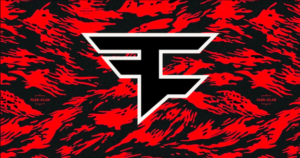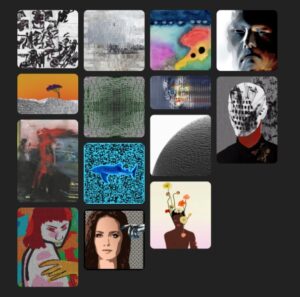
Connect with top gaming leaders in Los Angeles at GamesBeat Summit 2023 this May 22-23. Register here.
The popularity of esports has hit a fever pitch, with an estimated 29.6 million monthly esports viewers in 2022, up 11.5% from 2021. And with a fan base largely made up of young, tech-savvy individuals, the industry is perfectly poised to tap the potential of the booming metaverse and nonfungible token (NFT) verticals to drive a more sustainable revenue model.
Utilizing NFTs and virtual spaces can extend tangible rewards to fans and create a market for virtual assets to generate new and sustainable opportunities for esports athletes and franchises to align the success of their businesses with the fans’ enjoyment of esports.
Esports is primed for NFTs
As for revenue, the esports market has expanded significantly in recent years, and estimates suggest it could be a nearly $3 billion market by 2025, which is more than double the size of 2021. Traditionally, esports athletes have had to rely on some combination of sponsorships and prize money to generate revenue and fund their careers. However, NFTs can act as the perfect medium for these competitors to bring in new income streams while also providing something of value to their fans.
NFTs are blockchain-based digital assets containing cryptographically encoded, verifiably unique data. This makes each one entirely distinct and non-interchangeable (or nonfungible). Despite some vocal pushback, NFTs have seen impressive growth over the last year, bringing in over $40 billion in valuation in 2021 alone.
Event
GamesBeat Summit 2023
Join the GamesBeat community in Los Angeles this May 22-23. You’ll hear from the brightest minds within the gaming industry to share their updates on the latest developments.
When built with long-term value at the core and marketed correctly, these assets can appeal to both esports fans and NFT collectors, which can bring even more new users into the fold.
NFTs can bring recurring revenue in multiple ways
Recurring revenue is the holy grail for esports teams: it allows team managers to more confidently build their teams and business models for the future. Being able to offer long-term player contracts means teams can gradually build and succeed over time, instead of losing top talent in bidding wars when short contracts expire.
In addition to recurring revenue, there are many ways that NFTs can bring in revenue for esports players and leagues. Firstly, these assets can act as an extension of physical collectible items. Things like trading cards, 3D models, video clips and more can be released in a digital format and transacted back and forth by fans. Entire markets can be built around collectibles that offer everything from benefits in virtual worlds, like specific skins or accessories, all the way to physical access to unique events or merchandise. The variety of characteristics can breed complex motivations for supporters to own them.
Because of their unique digital nature, NFTs can be programmed with special properties, including how their secondary sales work. For example, baked-in royalties mean that any time an officially licensed esports NFT is resold on any market, a fixed percentage of all proceeds can be funneled directly to the original issuer. An NFT video, for example, could be designed to send a small donation to a predetermined wallet each time the footage is played. The same logic could be applied to other forms of media, meaning that teams can earn income just by having compelling content for supporters to consume.
This is where the real promise of NFTs lies for esports. Any individual or team can release a line of exclusive content in the form of collectible digital assets and can subsequently see the recurring revenue potential as these NFTs are repeatedly traded between supporters who want access to the utility of the NFTs. Of course, the market could become overcrowded with low-quality goods if these entities aren’t careful to make meaningful items for fans to collect.
Utility is key to unlocking long-term fan engagement and loyalty
When done well, utility NFTs can drive long-term engagement. When done poorly, these promotional releases consist of low-effort cash-ins. In this case, consumers will quickly grow weary and revenue streams could dry up. This is why it’s essential to bring unique utility and ongoing engagement to these campaigns and their assets. This can also be done in a variety of ways to keep supporters coming back and foster greater fan engagement.
There need to be clear and direct benefits that users can see regarding holding these NFTs. For example, NFTs could be used to offer VIP access to physical or online events, allow discounts on tickets to events or merchandise, and even unlock exclusive content from the issuing team. The possibilities are many, and ultimately implementation is up to the imaginations of esports performers and promoters. But as long as these offers convey meaningful experiences for fans, then it’s likely that NFTs will see continued engagement and trade for some time.
There are many ways that leaders in the industry can work with NFTs in their models. From the ability to monetize every moment from the biggest and most prestigious matches, to the unique ways that leagues can engage with their fans to build loyalty and encourage further support, can be supported with a solid NFT strategy. Entire content hubs can be developed that manage promotions and collections, providing users with a single point of entry and giving a clear path for franchises to tap into increased income and advertising potential.
Utilizing NFTs as a new revenue stream and esports is an ideal situation. The industry is already digitally focused and boasts a generally forward-thinking fan base. If athletes and leagues alike can tap into the possibilities of decentralized technology and release compelling content, then there will be a real chance for entirely new inflows of funds to help grow brands and expand influence. Furthermore, the early movers who take this leap first stand to see the most benefit, and those playing catch up will look like imitators, not innovators.
Sebastian Quinn is the CEO of Yesports, part owner of Talon Esports and a veteran in developing blockchain and emerging tech ventures.
GamesBeat’s creed when covering the game industry is “where passion meets business.” What does this mean? We want to tell you how the news matters to you — not just as a decision-maker at a game studio, but also as a fan of games. Whether you read our articles, listen to our podcasts, or watch our videos, GamesBeat will help you learn about the industry and enjoy engaging with it. Discover our Briefings.
.article-content .boilerplate-after {
background-color: #F5F8FF;
padding: 30px;
line-height: 2em;
margin-top: 20px;
margin-bottom: 20px;
border-left: 4px solid #000E31;
font-family: Roboto, sans-serif;
} .article-content .boilerplate-after p { margin: 0; } @media (max-width: 500px) {
.article-content .boilerplate-after {
padding: 20px;
}
}
- SEO Powered Content & PR Distribution. Get Amplified Today.
- Platoblockchain. Web3 Metaverse Intelligence. Knowledge Amplified. Access Here.
- Source: https://venturebeat.com/datadecisionmakers/how-the-metaverse-could-unlock-sustainable-revenue-models-for-esports/
- $3
- 11
- 2021
- 2022
- 2023
- 3d
- 9
- ability
- About
- access
- accessories
- ADDITION
- Advertising
- All
- alone
- appeal
- around
- articles
- as
- Assets
- athletes
- base
- benefit
- benefits
- between
- Biggest
- Billion
- blockchain
- blockchain-based
- Bloomberg
- brands
- bring
- bringing
- build
- built
- business
- businesses
- Campaigns
- Cards
- Careers
- case
- Catch
- ceo
- chance
- characteristics
- collect
- Collectible
- collectibles
- Collections
- Collectors
- combination
- coming
- community
- compelling
- competitors
- complex
- confidently
- consume
- Consumers
- content
- continued
- contracts
- Core
- correctly
- could
- course
- covering
- create
- data
- decentralized
- designed
- despite
- developed
- developing
- developments
- digital
- Digital Assets
- digitally
- direct
- distinct
- donation
- drive
- Early
- Earn
- emerging
- encourage
- engage
- engagement
- engaging
- entirely
- entities
- entry
- esports
- esports fans
- esports nft
- essential
- events
- Every
- everything
- Example
- Exclusive
- Expand
- Experiences
- extension
- fans
- Fever
- First
- focused
- form
- format
- forward-thinking
- Franchises
- fund
- funds
- further
- future
- game
- game industry
- game studio
- Games
- GamesBeat
- Gaming
- Gaming Industry
- generate
- Giving
- goods
- Grail
- greater
- Grow
- Growth
- having
- help
- here
- holding
- How
- HTML
- HTTPS
- imaginations
- implementation
- impressive
- impressive growth
- Including
- Income
- increased
- individual
- individuals
- industry
- influence
- innovators
- instead
- IT
- Key
- last
- latest
- leaders
- leagues
- LEARN
- licensed
- Line
- Long
- long-term
- Los Angeles
- Loyalty
- make
- MAKES
- manage
- managers
- margin
- Market
- Markets
- matches
- Matters
- May
- meaningful
- Media
- medium
- merchandise
- Metaverse
- million
- minds
- model
- models
- money
- Monthly
- more
- motivations
- multiple
- nature
- nearly
- need
- New
- news
- NFT
- NFTs
- offer
- Offers
- Officially
- One
- ongoing
- online
- opportunities
- original
- Other
- own
- owner
- P
- part
- passion
- percentage
- perfect
- performers
- physical
- plato
- plato data intelligence
- platodata
- platogaming
- player
- players
- Playing
- Podcasts
- Point
- poised
- popularity
- possibilities
- potential
- predetermined
- prestigious
- prize money
- proceeds
- promotional
- promotions
- providing
- quickly
- read
- Real
- Regarding
- register
- release
- released
- Releases
- revenue
- Rewards
- s
- sales
- secondary
- Share
- Short
- significantly
- situation
- Size
- Skins
- small
- solid
- something
- special
- specific
- Strategy
- stream
- streams
- studio
- succeed
- success
- Summit
- support
- Supported
- sustainable
- Take
- Talent
- Talon Esports
- Tap
- Team
- teams
- tech
- Technology
- The
- The Game
- The Metaverse
- things
- time
- token
- top
- trade
- Trading
- traditionally
- unique
- unlock
- Unlocking
- up
- Updates
- users
- utility
- Valuation
- value
- variety
- venturebeat
- Ventures
- verticals
- veteran
- Video
- Videos
- VIP
- Virtual
- virtual worlds
- Wallet
- Watch
- well
- What
- WHO
- within
- Work
- Worlds
- year
- years
- young
- zephyrnet












